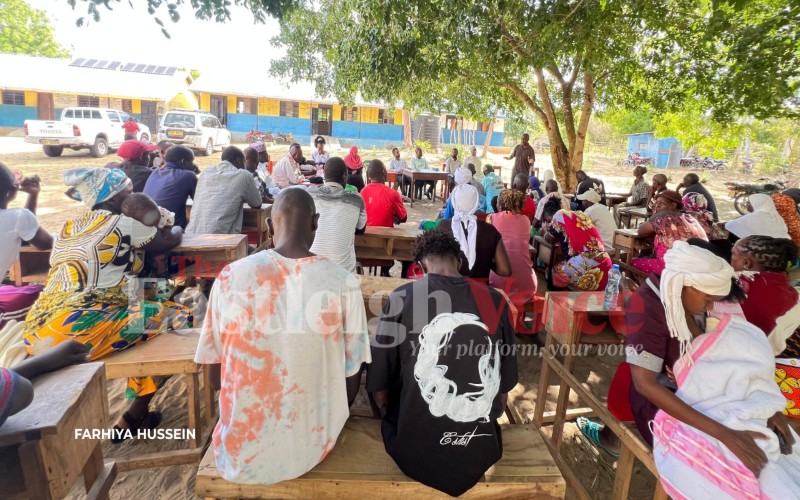MPs caution against creating parallel systems in women’s empowerment plan

The National Assembly Committee on Social Protection, led by Alice Ng’ang’a, met with officials from the National Government Affirmative Action Fund (NGAAF) on Tuesday to receive submissions on the policy.
A parliamentary committee has raised the alarm over a proposed National Policy for Women’s Economic Empowerment, warning that its vague implementation plan and overlap with existing systems could weaken ongoing initiatives for women across the country.
The National Assembly Committee on Social Protection, led by Alice Ng’ang’a, met with officials from the National Government Affirmative Action Fund (NGAAF) on Tuesday to receive submissions on the policy.
More To Read
- MPs back Women Enterprise Fund as Sh11 billion reaches 73,712 women groups
- Showdown looms over women’s empowerment policy MPs say undermines NGAAF
- Raila pushes for expanded devolution, says counties should run schools and local infrastructure
- Muturi: Anchoring NG-CDF, oversight funds in Constitution undermines separation of powers
- Treasury disburses Sh68 billion to NG-CDF board, clearing all outstanding arrears
- National Assembly passes Bill to anchor NG-CDF, NGAAF, SOF in Constitution, paves way for Senate review
The policy was developed by the State Department for Gender and Affirmative Action within the Ministry of Gender, Culture, the Arts and Heritage.
During the session on Tuesday held at Parliament Buildings, members questioned why the policy did not clearly outline which agency would be responsible for its rollout, despite touching on functions already handled by Women Representatives in all 47 counties.
“We support every effort that empowers women. But we cannot sit and watch a policy roll out that risks weakening institutions already delivering results. If something is working, don’t create a parallel system; reinforce it,” Ng’ang’a said.
NGAAF CEO Roy Sasaka Telewa stressed the need for the policy to be specific on the lead implementing body.
“The policy must expressly state who the implementing agency is,” he told the committee. “If it is NGAAF, then it must operate within existing frameworks so that efforts complement rather than duplicate.”
Legislators cautioned that unless the policy is reviewed, it could reverse progress achieved through NGAAF and Women Representatives’ offices.
Zamzam Mohammed (Mombasa) questioned why the policy seeks to extend its reach to counties without proper engagement.
“Counties already have their own budgets. This appears to be coming through the back door. The Cabinet Secretary must clearly explain what the intent is,” she said, adding that loan requirements for young people need to be addressed.
“Let’s be realistic while creating policies. Where will young people get the logbooks and title deeds to access loans in this economy, as required by the youth fund?”
Agnes Pareyio (Narok North) described some proposals as “a scheme to edge out Women Representatives,” while Barre Hussein Abid (Tarbaj) warned that the policy language seemed to target NGAAF indirectly.
The committee emphasised that while it respects the Cabinet’s policy role, Parliament’s oversight duty must not be undermined.
We are not against the Cabinet. However, as custodians of NGAAF and champions of women’s empowerment, we must ensure public resources are used prudently. It’s better to expand NGAAF’s mandate than create new bureaucracies,” Ng’ang’a said.
The committee will summon the Cabinet Secretary for Gender in the coming weeks to provide further clarification on the policy before it can move forward.
Top Stories Today










































